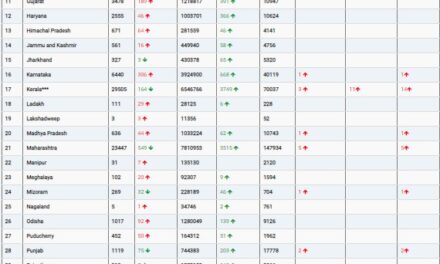As we sing about “tidings of comfort and joy,” Christmas has a darker side: it brings a surprising rise in heart attacks and strokes. In fact, according to the American Heart Association, December 25 is the day of the year with the highest number of cardiac events, and heart-related emergencies surge throughout the last two weeks of December.
Dr. Patricia Vassallo, an associate professor of cardiology at Northwestern University, explains that the cold temperatures during the winter months play a key role in this spike. “Cold weather causes blood vessels to constrict, raising blood pressure and making the heart work harder to pump blood,” she says. This added strain can trigger heart attacks, especially in individuals with pre-existing conditions.
Beyond the weather, the holiday season itself adds layers of stress, contributing to an increase in health risks. While Christmas is a time of celebration for many, for others, it can be a period of emotional strain. “The season can be joyous, but it can also be stressful for those grieving lost loved ones or dealing with the pressures of family gatherings and holiday expectations,” Vassallo notes. Additionally, disrupted routines—such as lack of sleep, more alcohol consumption, and missed medications—can further exacerbate heart problems.
Given the risks, Vassallo offers several tips to help individuals protect their heart health during the holiday season:
- Come Inside Often: Prolonged exposure to the cold can negatively impact your heart. Vassallo recommends taking frequent breaks to warm up when you’re outside for extended periods.
- Dress for the Weather: Layering up with hats, gloves, and heavy socks may seem cumbersome, but it’s crucial when braving the winter chill.
- Avoid Excess Alcohol: While holiday festivities often include alcohol, consuming too much can mask the effects of cold weather and increase the strain on your heart. Vassallo advises limiting alcohol consumption, especially when you’ll be outdoors for extended periods.
- Don’t Overexert Yourself: Tasks like shoveling snow can be physically demanding, especially for those with heart conditions. Vassallo recommends not overdoing it and consulting with your doctor if you’re unsure whether it’s safe for you.
- Seek Medical Attention If Necessary: If you experience any new symptoms, such as severe chest pain, nausea, cold sweat, sudden fatigue, or heartburn, it’s important to consult a doctor immediately. These can be signs of a heart attack or stroke. Additionally, weakness in the arms or legs, facial drooping, or difficulty speaking could indicate a stroke.
While the holidays can be a joyful time, it’s essential to prioritize heart health during this busy season. By following these precautions, you can help ensure that the festive spirit stays merry and bright.











